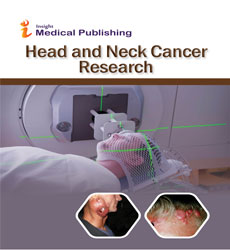Abstract
Treatment of Locally Recurrent and Metastatic Squamous Cell Carcinoma of Head & Neck
The survival rate at 3 years after potentially curative surgical or radiation treatment for locally advanced squamous cell carcinoma of head and neck (SCCHN) remains quite poor at 30 to 50%. Over 50% of these patients relapse locally or at distant sites and with a median survival of 6-9 months. This review focuses on the established and experimental strategies seeking to improve this outcome. Cetuximab is a chimeric immunoglobulin G1 monoclonal antibody engineered specifically to compete with the natural ligand for EGFR binding sites on the external surface of the cell membrane. This antibody have demonstrated significant disease control rate of over 45% as single agent in the locally recurrent/metastatic disease setting. The combination of cetuximab with platinum-based and taxane-based chemotherapy regimens has resulted in disease control rate of up to 80%. Studies are currently ongoing to assess the activity of immunotherapeutic agents like CTLA-4, PD-1, and PD-L1 inhibitors in the treatment of advanced SCCHN both in biomarker selected and unselected patient population with encouraging preliminary results. Moreover, the combination of these agents with standard chemotherapy regimens, and with cetuximab in the treatment of SCCHN is also being explored.
Author(s):
Chukwuemeka V Ikpeazu
Abstract | Full-Text | PDF
Share this

Google scholar citation report
Citations : 28
Head and Neck Cancer Research received 28 citations as per google scholar report
Abstracted/Indexed in
- Google Scholar
- JournalTOCs
- China National Knowledge Infrastructure (CNKI)
- WorldCat
- Publons
- Secret Search Engine Labs
Open Access Journals
- Aquaculture & Veterinary Science
- Chemistry & Chemical Sciences
- Clinical Sciences
- Engineering
- General Science
- Genetics & Molecular Biology
- Health Care & Nursing
- Immunology & Microbiology
- Materials Science
- Mathematics & Physics
- Medical Sciences
- Neurology & Psychiatry
- Oncology & Cancer Science
- Pharmaceutical Sciences


